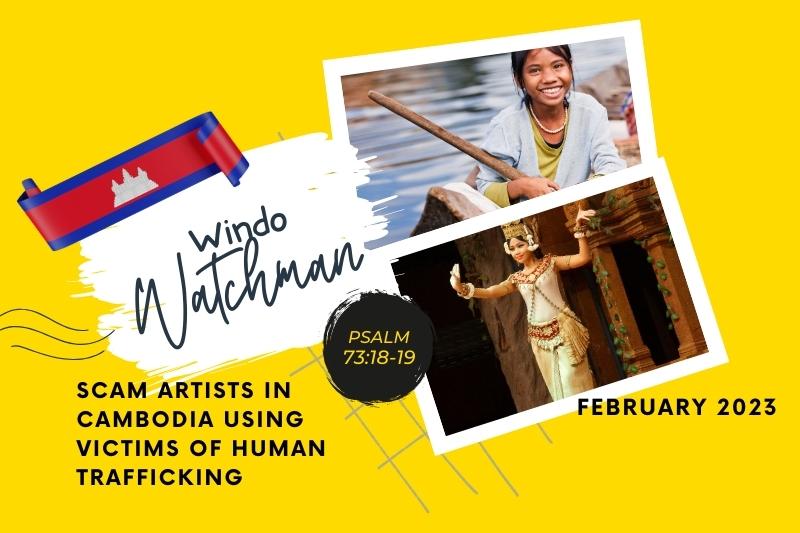Scam Artists in Cambodia Using Victims of Human Trafficking

BASIC INFORMATION ON CAMBODIA
Chief of State: King Norodom Sihamoni
Head of Government: Prime Minister Hun Sen
Population: 15,288,489
Christians: 3.2%
Evangelical Christians: 1.6%
Have you ever received an unwanted phone call or email from someone claiming if you send money you will get great returns or a solicitation for a relationship with a “lonely woman?” Though these scams are common in the West, they are even more common in virtually all countries of East Asia. The perpetrators of this evil crime are usually not doing it voluntarily. These unwilling criminals are typically well-educated and have computer skills and local language abilities.
Human trafficking victims get lured to Cambodia from all over Asia with promises of high-paying, honest jobs at luxurious hotels or casinos. Upon their arrival, Chinese and Cambodian middlemen trap them in rooms with iron bars over the windows. These rooms are their new homes and workplaces until they pay off bogus debts. Scammers use armed guards to keep their “recruits” from escaping. They must spend their time scamming people who are looking for “romantic” relationships or easy money through gambling or cyber-currency “investments.” Those who don’t make their quota are starved, beaten, shocked with rods, or sold like slaves to another scam outfit.
Though such criminal activities also happen in other countries, Cambodia is an easy target for Chinese crime syndicates. China’s Belt and Road Initiative has provided essential infrastructure for criminal networks throughout Asia. Cambodian police and judges take bribes from criminals, allowing the situation to continue. The result is alarming: An estimated 100,000 foreigners have been lured to Cambodia for these destructive jobs.
The situation has become worse in the 2020s. Chinese criminals could once hide their dirty work by hiring other Chinese in both China and Cambodia. Then came Covid and China’s lockdowns. Other Asian countries liberalized their Covid protection measures more quickly than the PRC. At that point, Chinese criminal syndicates looked to border towns in Myanmar and Cambodia to re-establish their evil businesses. In an ironic turn of events, Cambodia outlawed online gambling in 2020. High, towering buildings in the gambling resort town of Sihanoukville needed new occupants. Instead of online gaming, these buildings became home to cyber scam operations. With the alliance between the Cambodian government and Chinese crime syndicates, Cambodia became the critical hub for cyber scams.
The U.S. State Department and many Asian governments have had enough. They put pressure on Cambodia’s government, and in August of last year, Cambodian authorities raided many of these cesspools. They sent foreigners back to their countries and closed down scam cells in Phnom Penh and Sihanoukville. Though this is a setback for these criminals, scam centers will most likely move to other parts of Cambodia, Laos, and Myanmar. Jan Santiago, deputy director of the advocacy group, Global Anti-Scam Organization, told Forbes that the situation would not change until the primary owners of cybercrime centers are brought to justice. That will require an act of God.
SOURCE:
- Inside the call centre scam that lured vulnerable workers to Cambodia and trapped them in the murky world of human trafficking. ABC News. December 28, 2022
- Cambodia scams: Lured and trapped into slavery in South East Asia. BBC News. September 21, 2022
- How Cambodia’s scam mills reel in new “cyber slave” workers. Restofworld.org. October 10, 2022
- Cambodia Is Cracking Down On ‘Fraud Factories,’ Where People Are Forced To Scam Others. Forbes. September 21, 2022
